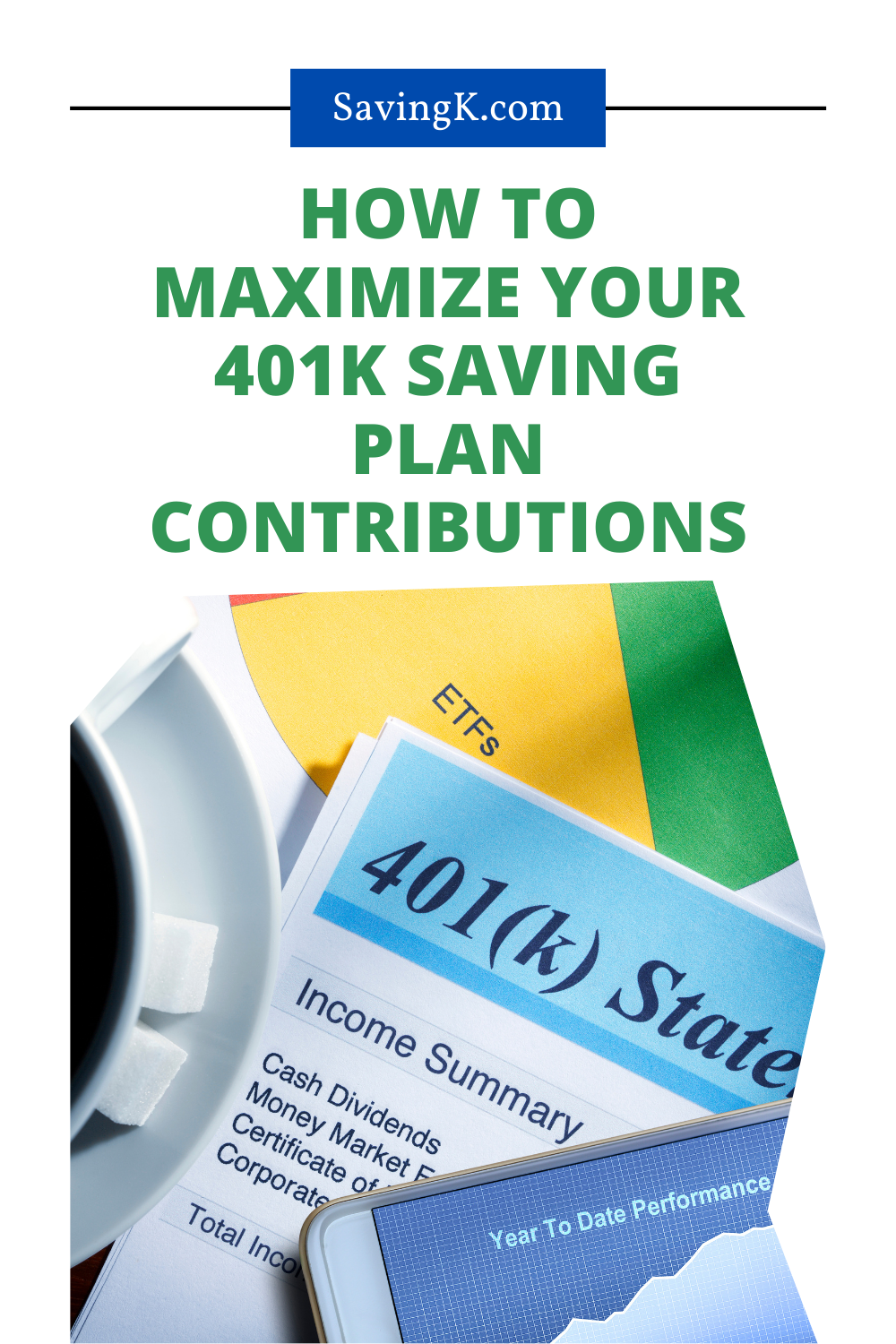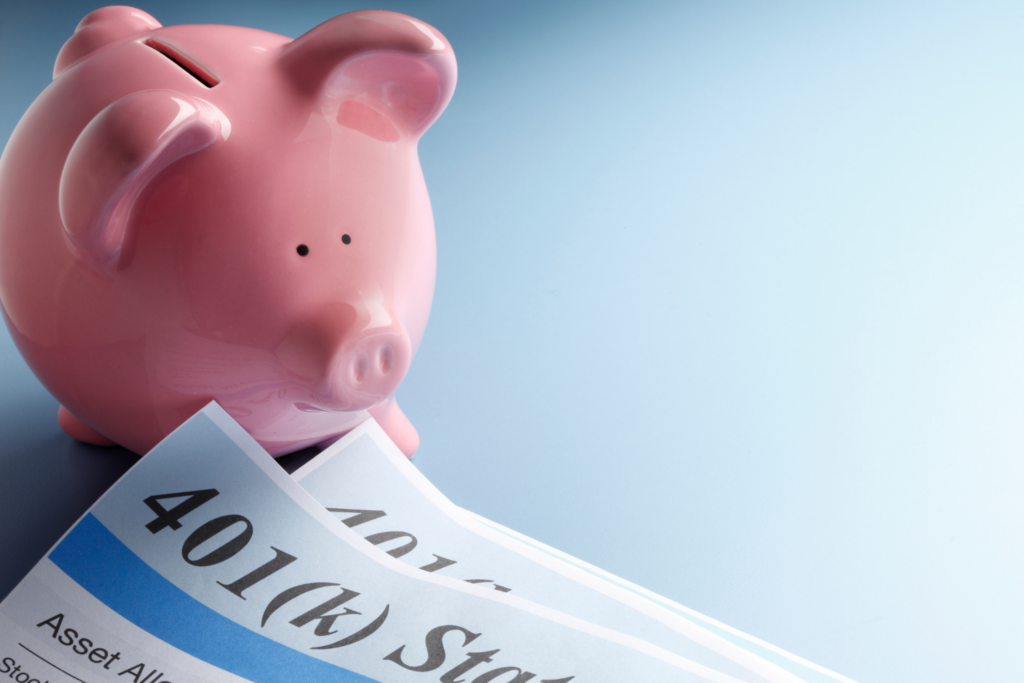
Are you looking for ways to maximize your 401K saving plan contributions? If so, you’re in luck! In this blog post, we will discuss some tips and strategies that will help you make the most of your 401k plan. We’ll go over how to choose the right investments, how to reduce your taxes, and more. So whether you’re just starting out with a 401k or you’ve been contributing for years, read on for helpful advice!
401k plans are a great way to save for retirement, but it can be difficult to know how to make the most of them. With so many options and choices, it’s easy to feel overwhelmed. But don’t worry! In this blog post, we’ll give you some tips and tricks that will help you get the most out of your 401k plan.
Contents
401K Factors To Consider
First, let’s start with choosing the right investments for your 401k. If you’re not sure where to begin, talk to a financial advisor or investment professional. They can help you figure out what kind of investments will best suit your needs and goals. However, there are a few things to keep in mind when making your selections.
Diversification
For one, try to diversify your investments. This means putting your money into different types of assets, such as stocks, bonds, and mutual funds. This way, if one type of investment goes down, you’ll still have others that are doing well.
Risk Tolerance
One important factor to consider when choosing 401k investments is your risk tolerance. 401k plans usually offer a variety of investment options, from low-risk choices like government bonds to higher-risk options like stock indexes. Think about how much risk you’re comfortable taking on before making any decisions.
Contribution
Once you’ve selected the right investments for your 401k plan, it’s time to start contributing! If your employer offers a 401k match, be sure to take advantage of it. This is free money that can help you reach your retirement goals faster.
Decide how much you can afford to contribute. The first step in maximizing your 401 k contributions is to decide how much you can realistically afford to set aside each month. This will depend on your income, your debts, and your other financial obligations. Once you have a good idea of how much you can afford to save, you can start setting up your budget and making adjustments as necessary.
If you’re self-employed or don’t have a 401k plan through work, don’t worry. You can still open a 401k on your own. There are a few different ways to do this, so talk to a financial advisor to find the best option for you.
Invest Wisely
One of the most important aspects of maximizing your 401 k contributions is choosing the right investments. There are a lot of different options out there, so it’s important to do some research and figure out which ones are right for you. It’s also a good idea to talk to a financial advisor, who can help you make informed decisions about your 401k.
Reduce Taxes
One of the biggest benefits of contributing to a 401 k is that it can help you reduce your taxes. When you contribute pre-tax dollars to your 401 k, you’re essentially lowering your taxable income. This means that you’ll owe less in taxes each year, which can save you a significant amount of money over time.
Catch-up Contributions
If you’re 50 or older, you may be able to make catch-up contributions to your 401K . These are additional contributions that can help you boost your savings and reach your retirement goals sooner. Catch-up contributions are especially beneficial if you’ve fallen behind on your 401 k savings.
Stay Disciplined
One of the most important things to remember when trying to maximize your 401 k contributions is to stay disciplined. It can be easy to miss a month or two (or more) of contributions, but it’s important to stick with it. If you can make consistent, regular contributions, you’ll be much more likely to reach your retirement goals.
Advantages of 401K Savings Plans
401k saving plans offer a lot of advantages, including tax breaks, employer matching contributions, and more. If you’re looking for a way to save for retirement, a 401k plan is definitely worth considering. Here are some of the main benefits of 401k savings plans:
- Employees can contribute pre-tax income to their 401K, which reduces their current taxable income.
- Employers may offer a matching contribution, which effectively doubles an employee’s savings.
- The money in a 401K grows tax-deferred, meaning that no taxes are due on the earnings until the money is withdrawn in retirement.
- Withdrawals from a 401K are taxed as ordinary income, so there is no penalty for early withdrawal.
- Employees can borrow from their 401K without paying any taxes or penalties.
Disadvantages of 401K Savings Plans
There are a few disadvantages to consider as well:
- If an employee leaves their job, they will typically owe taxes on the 401K money that they’ve withdrawn.
- 401Ks have annual contribution limits, so employees may not be able to save as much as they would like.
- 401Ks are subject to investment risk, just like any other type of investment. This means that the value of a 401K can go down as well as up.
Despite these disadvantages, 401Ks remain one of the most popular retirement savings vehicles for both employees and employers. If you’re eligible to participate in a 401K, it’s definitely worth considering contributing to one. With a little bit of planning and discipline, you can maximize your contributions and make the most of this powerful retirement savings tool.
401K Saving Plan FAQs
Here are some frequently asked questions about 401K savings plans:
What is a 401K saving plan?
A 401K is a retirement savings plan that’s sponsored by an employer. Employees can choose to have a portion of their paycheck withheld and deposited into their 401K account. The money in a 401K grows tax-deferred, meaning that no taxes are due on the earnings until the money is withdrawn in retirement.
Who is eligible to participate in a 401K?
Most full-time employees are eligible to participate in their employer’s 401K plan. There may be some age or service requirements, so it’s best to check with your HR department to see if you’re eligible.
How much can I contribute to my 401K?
The 401K contribution limit for 2022 is $20, 500. If you’re 50 or older, you may be able to make catch-up contributions of up to $6500. Source.
What are the tax benefits of contributing to a 401K?
Contributing to a 401K saving plan can help you reduce your taxable income. The money that you contribute is deducted from your paycheck before taxes are calculated, so you’ll owe less in taxes each year.
What happens to my 401K if I leave my job?
If you leave your job, you can choose to cash out your 401K or roll it over into an IRA. If you cash out, you’ll owe taxes on the money that you withdraw. If you roll it over into an IRA, you won’t owe any taxes.
Conclusion
401Ks are a great way to save for retirement, but it’s important to understand how they work before you start contributing. With a little bit of planning, you can make the most of your 401K and enjoy all of the tax benefits that come with it.
Now that you know how to make the most of your 401k saving plan contributions, it’s time to start saving! These tips will help you reach your retirement goals in no time. So what are you waiting for? Get started today!





